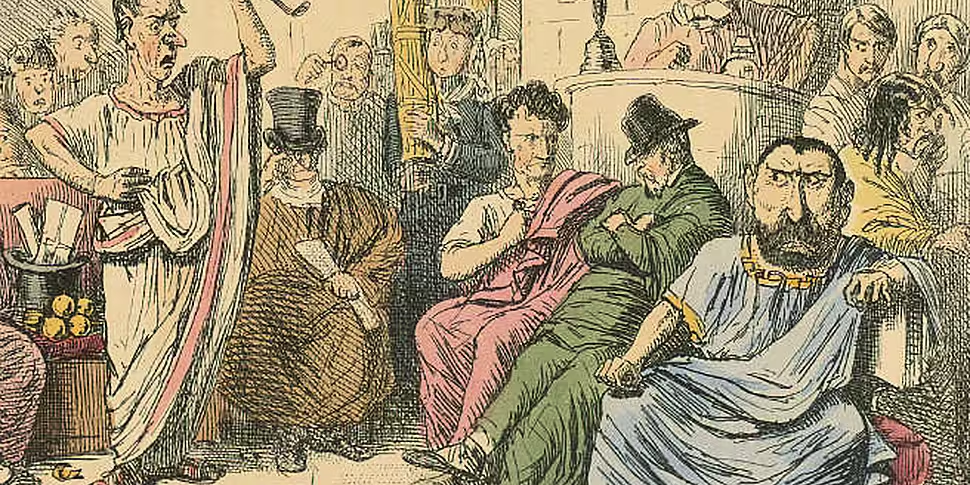Strange women lying in ponds distributing swords is no basis for a system of government. Supreme executive power derives from a mandate from the masses, not from some farcical aquatic ceremony.
– Dennis the Peasant, Monty Python’s Search for the Holy Grail
What’s the best way to rule a nation? If power is vested in one person or an elite few then decisions can be made quickly and free from populist pressure. With little to keep these figures in check though tyranny becomes all but inevitable.
When power is vested in the people, decision making becomes bogged down in a quagmire of debate and dissention. Democracy is terribly slow and incredibly vulnerable to populism. But it is representational and equal.
As Winston Churchill explained: “democracy is the worst form of government except all those other forms that have been tried from time to time”.
Now a global philosophy democracy is largely reckoned to have been born in Athens in roughly 507 BC. Here the philosopher Cleisthenes led a popular movement to have the power of the state vested in the citizenry. While the majority of the population, including women and the landless, were excluded from the process, political power in Athens lay with the people.
While Athens is the earliest recorded democratic state, the underlying ideas existed in numerous earlier civilisations. In Egypt, India, and the Middle East there is evidence that the decision making lay, in some substantive part, with the people. The immense power of kings, emperors, and tyrants were often wielded only with the assent of a body representing the citizenry.
As states grew in power and territory it became increasingly difficult for the people to have their say in the overall governance. The powers of autocrats grew as empires expanded. When the Roman Republic gave way to imperial rule the first great democratic period came to a close.
While democratic theories and ideas persisted during the Middle Age they were largely confined to small city states. Even the Renaissance’s interest in Ancient Greece couldn’t revive democratic practices on any real scale and tyrants, kings, and princes continued to dominate the continent.
The underlying ideas did grow, however, and by the end of the 17th century the roots of modern democracy had been firmly laid in the Netherlands, England, the New World, and numerous small states across Europe.
Momentum grew with the passage of time and people began to demand ever greater rights and representation. Less than a century after the Glorious Revolution established England as a constitutional monarchy the 13 American colonies declared themselves an independent democracy. A flood of revolutions followed, most with democratic ideals at their heart.
The story of democracy’s slow rise is filled with chapters of great leaps broken up by periods of slow growth or regression.
Many of the 18th and early 19th centuries’ revolutions ended in failure. France had spiralled into tyranny, war, and empire building while Simon Bolivar’s Gran Colombia shattered less than a year after his death, many of the fragments falling into dictatorships.
Despite these setbacks the 19th century did bring gradual change and on the eve of World War One people’s voices were louder than they had ever been before. This conflict would prove a great catalyst for change as the franchise was widened across much of the world. Democracy suddenly didn’t look like a game just for wealthy white men.
Though the move toward democratic ideals would take a large blow with the proliferation of fascist and communist dictatorships these would prove temporary hiccups. The 20th century ended with democracy in an enviable position. Where Athens was a lone city ruled by the most powerful men, in the year 2000 120 of the world’s 192 nations were governed by representatives elected by universal suffrage.
Join Patrick as he talks with a panel of experts about the history of democracy and how it became the world’s dominant form of governance.









